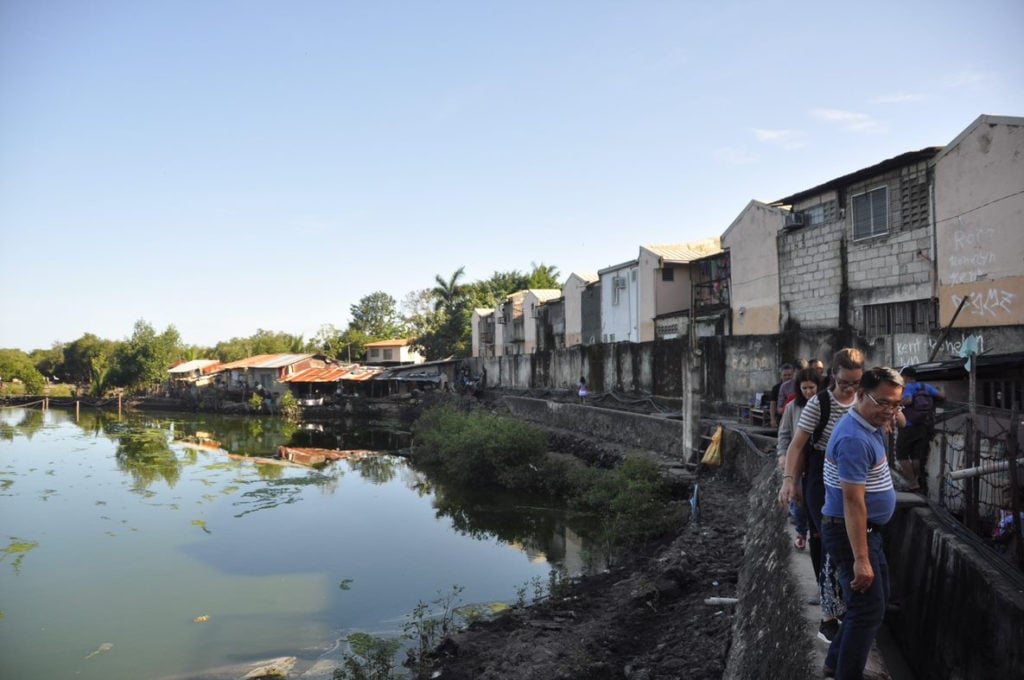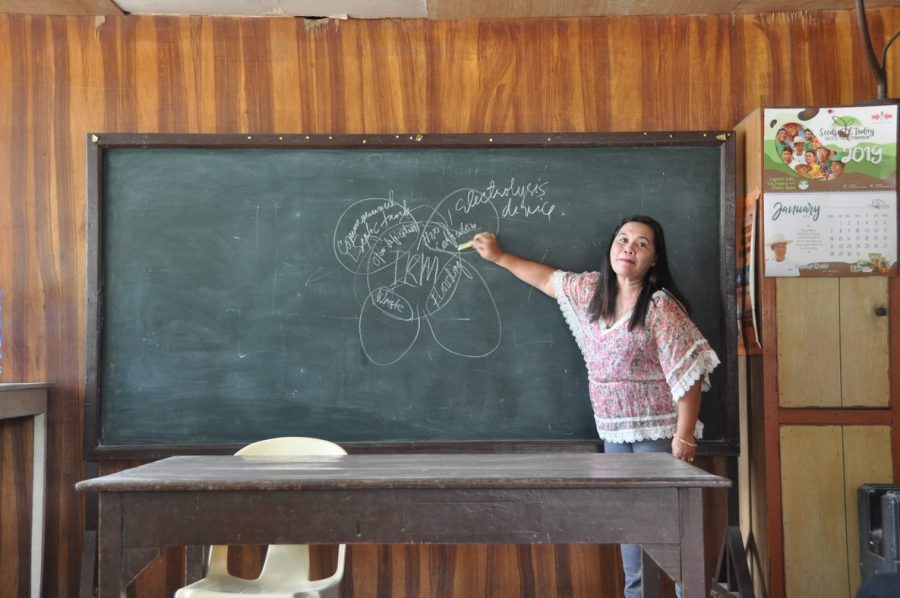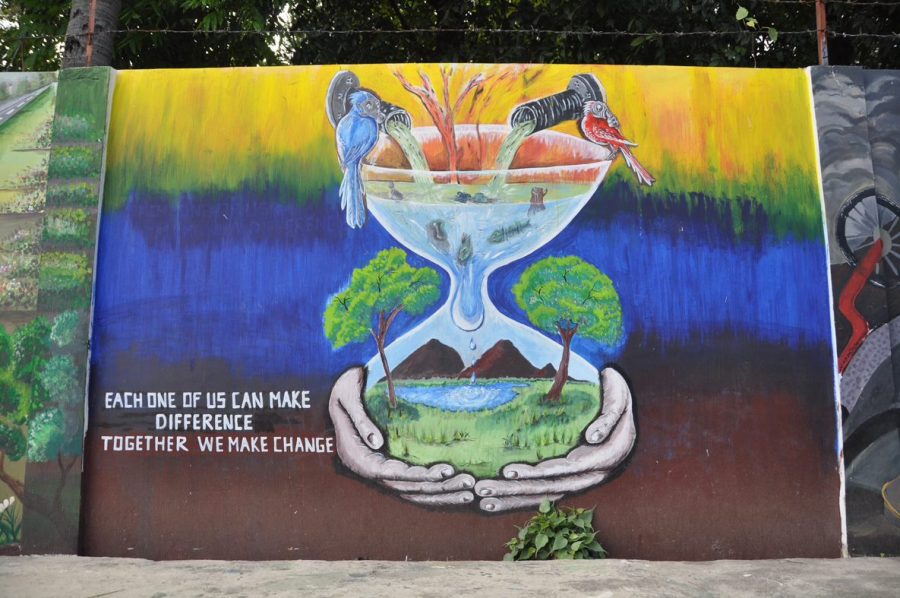Right after COVID-19 hit their town, people in Jagobiao started coming together with local officials to support each other and limit the spread of the virus. One of these people is Alicia Ambos Barrega. As part of the Partners for Resilience podcast series, Anat Prag from Cordaid spoke with Alicia to shed light on what is happening in her village, outside of Cebu City in the Philippines, and to hear her hopes for the future.

Alicia is a member of the Sacred Heart Chaplaincy and the People’s Alliance for a Resilient Jagobiao, both partners of Cordaid and its work in the Philippines. Alicia is passionate about increasing her village’s resilience to natural disasters and has been for many years.
Through her work with the Sacred Heart Chaplaincy, Alicia and others in her community worked on projects designed to strengthen resilience in urban areas, to reduce disaster risks, and to adopt an integrated risk management approach. Alicia has helped teach her fellow community members how to develop their urban farms, plant vegetable gardens, and improve the village waste management and collection systems.
“Our lives, our families, and our needs are our responsibility. This means we must be prepared. We call it resilience. We are going to do good things for our family. For everyone in the community.”
These efforts aim to enable people to respond, adapt, and recover from the serious risks the region faces from time to time, like floodings, fires, and a lack of food and clean water, as well as tackling the impact of pollution and poor waste management.

New risks and hazards
The pandemic brought along a multitude of new risks and hazards. Alicia explains that while villagers were initially fearful of the virus and worried about their health, it quickly became apparent that the social and economic impacts could be severe as well.
In the wake of the crisis, many people in Jagobiao lost their jobs. Almost everyone (90%) relies on daily wage occupations for their income and many companies closed down. This intensified pre-existing concerns over food security and people started to wonder for how long they would still have access to their basic needs, unsure about when or how the government would intervene to provide support.
“This is the time that people and the government should be collaborating and helping each other. If people follow the instructions and executive orders, I think we can conquer COVID-19.”
The emergence of alternative livelihoods
After people started losing their jobs, Jagobiao saw a shift that Alicia coined as going ‘back to the basics’. She explains: “While they don’t have any work or income, people go back to activities like fishing, planting vegetables, using dry branches of trees and wood for cooking and collecting seashells.”
This helped people to continue to meet their essential needs and in some cases, it could become a complementary livelihood alongside their regular employment. Alicia says many Jagobiao residents are now combining a new ‘corona-proof’ working routine with their alternative livelihood activities: “If you work for a company 3 days a week, the rest of the days you can plant vegetables.”
For Alicia, the collaboration between the government and the people of the Philippines is key to overcoming COVID-19. “This is the time that people and the government should be collaborating and helping each other. If everyone follows the instructions and executive orders, I think we can conquer COVID-19.”
Hope for the future
When asked about her hopes for the future, Alicia answers: “I wish to see people become resilient, to see them being equipped with knowledge and that they will be able to help themselves to survive in times of crisis.”
She emphasized the importance of the Filipino Purok system in achieving this, not just for a select few, but for every single resident of Jagobiao.

“The Purok system is a clustering of the community. This means you divide a community into smaller clusters. It is the easiest way to gather people, to teach them and to identify the most vulnerable. The system allows you to do local planning in a much larger setting so that everyone is catered to.”
Mitigation and economic resilience
Five months into the pandemic, Alicia and other urban farmers in Jagobiao are not only growing food for themselves and their families; as a part of the COVID-19 response of Cordaid and Partners for Resilience, they have successfully worked on mitigation and established economic resilience.
They are teaching new communities surrounding Jagobiao how to expand urban farming and are selling the harvest from their own city farms to provide food baskets to support other families.
In the last week, urban farmers in Jagobiao earned 864 USD from selling vegetables, and the demand is increasing. Developing alternative income-generating activities in the face of COVID-19 is an important strategy, especially when the lost jobs might never return.
Hear more stories like Alicia’s by following Partners for Resilience, or read more about Cordaid’s work in the Philippines.
The pictures in this article were taken before the coronavirus outbreak.
DISCLAIMER
Cordaid is no longer operational in the Philippines